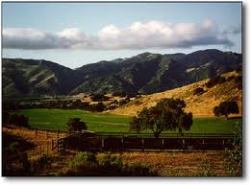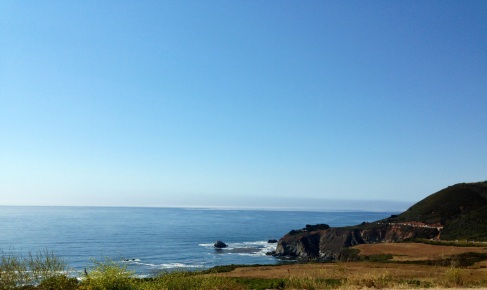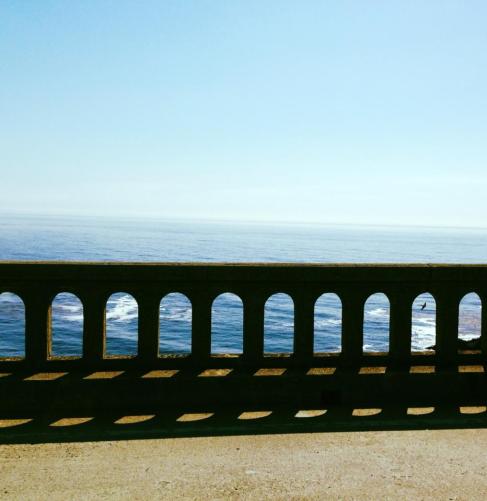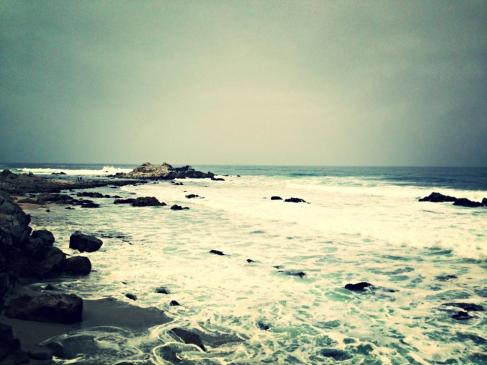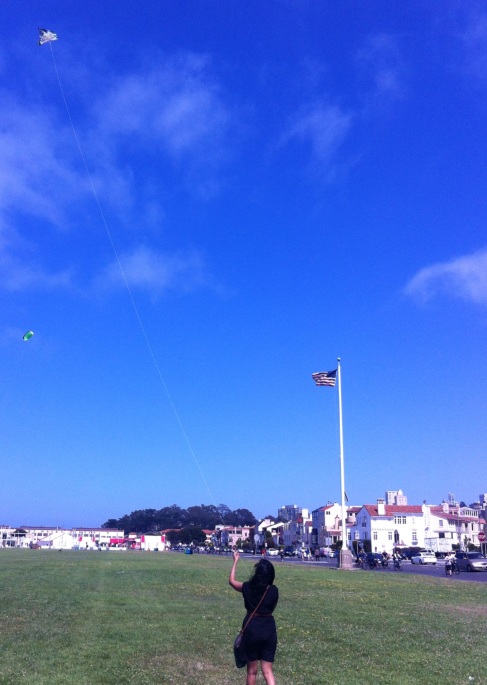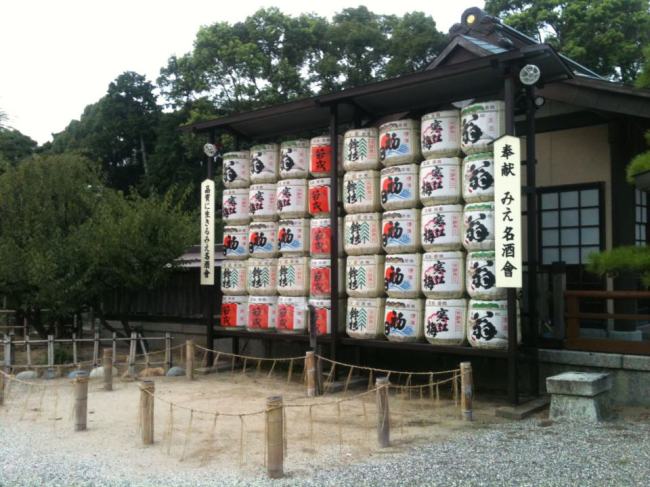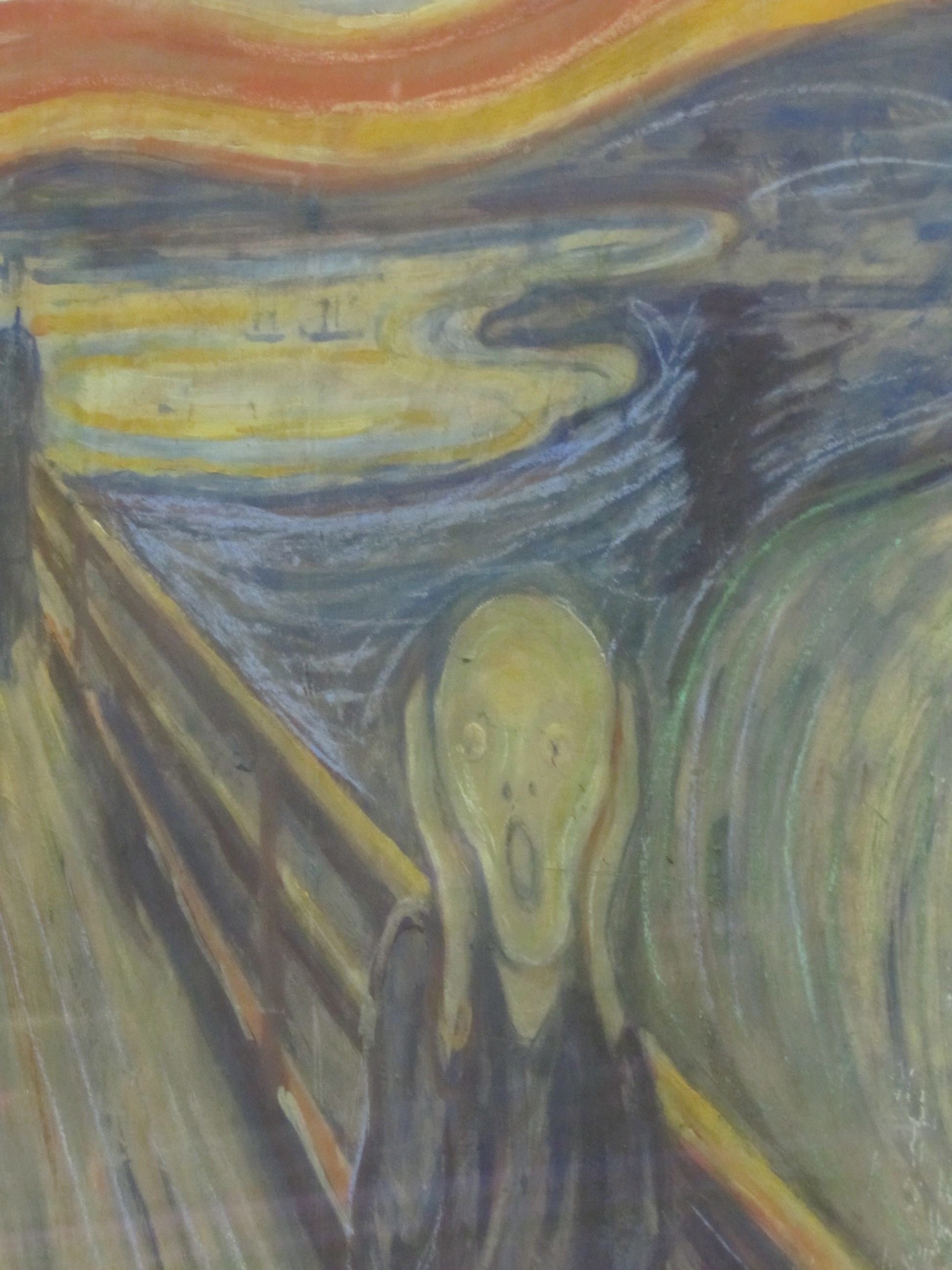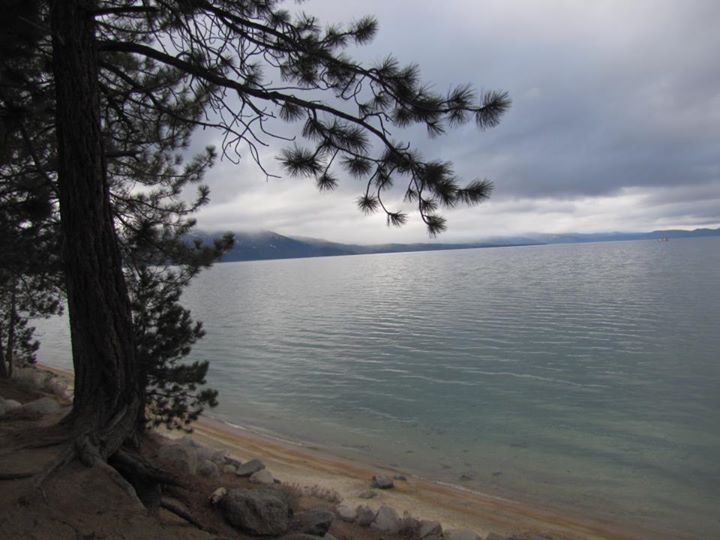I step out onto the clean and neat pavement, lined with pink blazing stars, a row of purple jacarandas and the smell of newly trimmed, symmetric green grass. A woman wearing a lulu lemon tee and black tracks is walking a chihuahua, chattering incessantly in a high pitched voice on her iPhone. The dog appears tired, after having finished his ablutions for the day, wants to retire and dream in dogworld. A bare chested man jogs along attempting to lose 200 excessive calories from the Shock Top Belgian he guzzled at the soccer match earlier today. An old Russian couple walk silently next to each other, she lost in her stolichnaya dolls and pirozhkis, and he taking in the surroundings like a sniff of vintage Kauffman. Long years of marriage puts these pauses and breaks, the kind where you are together and alone simultaneously. In the distance sat a homeless man, with his pieces of belongings, a tiny suitcase, a cardboard box, a pair of sneakers, a blanket. He hums Lennon, "All you need is love.." and eats a Ben and Jerry's ice cream. The Mexican who works at the restaurant next door, jumps off line 316 and runs to work while putting on his blazer. An ambulance whizzes by, followed by a cop car. An accident, maybe a head on collision, maybe just a dent. My phone rings, "Amma..".
****
I walk out onto the uneven kaccha road leading to Sitaphal Mandi. The road is brown, bumpy, crooked, and narrow. Some cows graze on along the side, they are troubled by crows and flies. A pack of dogs bask in the glorious June sun, while two other dogs are momentarily locked in a fight which soon becomes amorous. A huge line of two wheelers hurtle along the bumpy road. Couple of women dressed in cotton saris sit selling vegetables, the greeny, bittery kind with names sounding like Marvel characters. Women and children walk by, trying to get their kids to schoolrooms before the gong sounds. Babies cry, the heat is too much to bear. Men prance about wearing lungis, tucked up showing their (not so) bare legs. They stand gazing, taking in the surroundings very differently from the Russian man, sipping on a hot cup of Irani tea. Construction workers pile reddish-brown bricks plastered with grey cement. The cow dung fills the air with a manure like smell. The cackle from the women selling sabji intermingle with the sound of onions being fried in the Chinese fast food shop, the wafting smell of garlic spiraling into the vermillion sky. At the nearby station platform, there is a board, "Sabari Express is delayed by 5 hours..."
****
I step out into lush greenness, the foliage thick enough to cover an elephant. The rain has just drenched the brown earth of its sorrows. The smell of mud fills the ether. A praying mantis sits quietly meditating on a jasmine bush. The mosquitoes are composing their own fugues and canons. The blue gossamer winged butterflies fluttering their wings circle the mauve lilies in the pond, sure to cause another Katrina or a Sandy in some other part of the world. The Maami next door is reciting her prayers for the morning, while the Maama performs the rituals in the pooja room. The smell of sandalwood wafts through as the incense sticks continue burning. Ripe, yellow mangoes have fallen on the ground and a squirrel scampers to get a bite. A man hurries along to catch the bus to go pay the electricity bill before his life goes unto darkness. A thin boy heads to the local temple to ask for forgiveness and pray for plentiful. Someone is making a mug of strong filter coffee. At the corner stand people drinking lime soda, talking about elections, weather, and football. The different umbrellas passing by forms a rainbow in itself, some use Poppy, some Johns, and others plain, black ones. The sky is dark grey, overcast and rumbling. It will pour a lifetime's worth by the time the Sabari Express pulls into platform no: 1.











